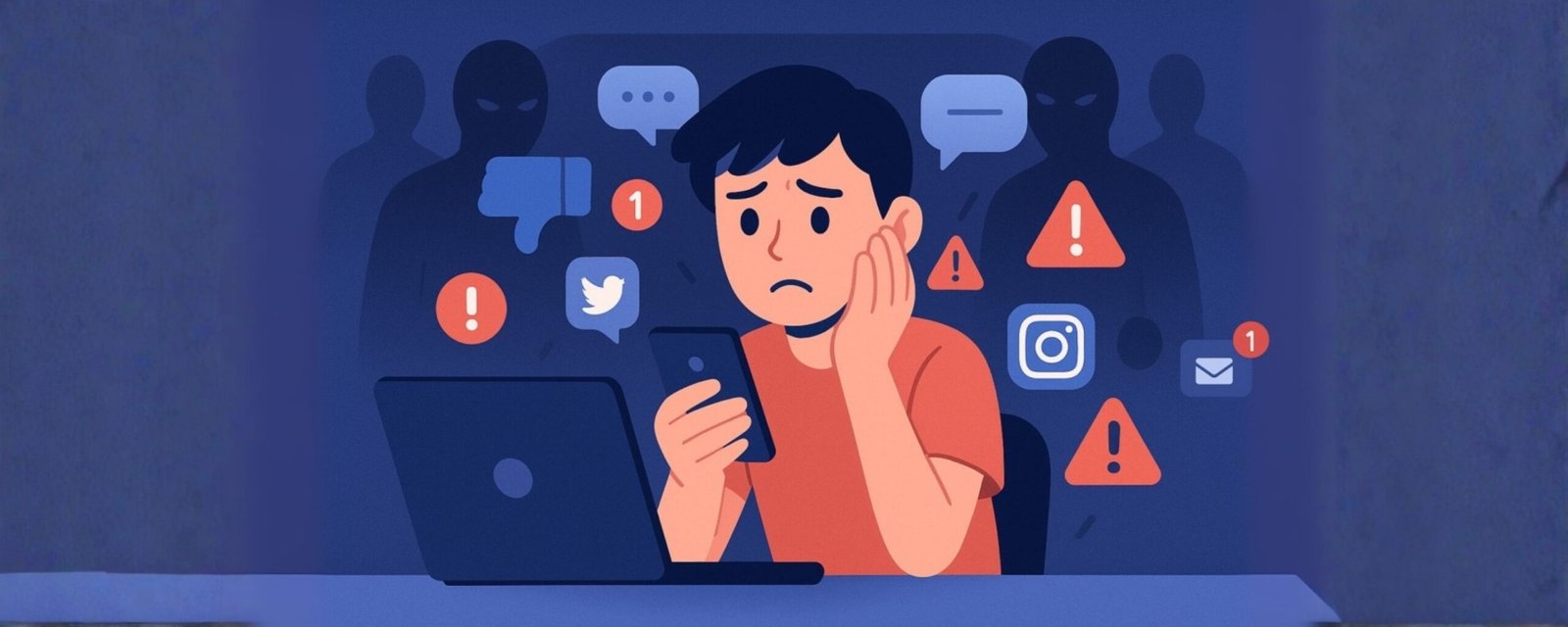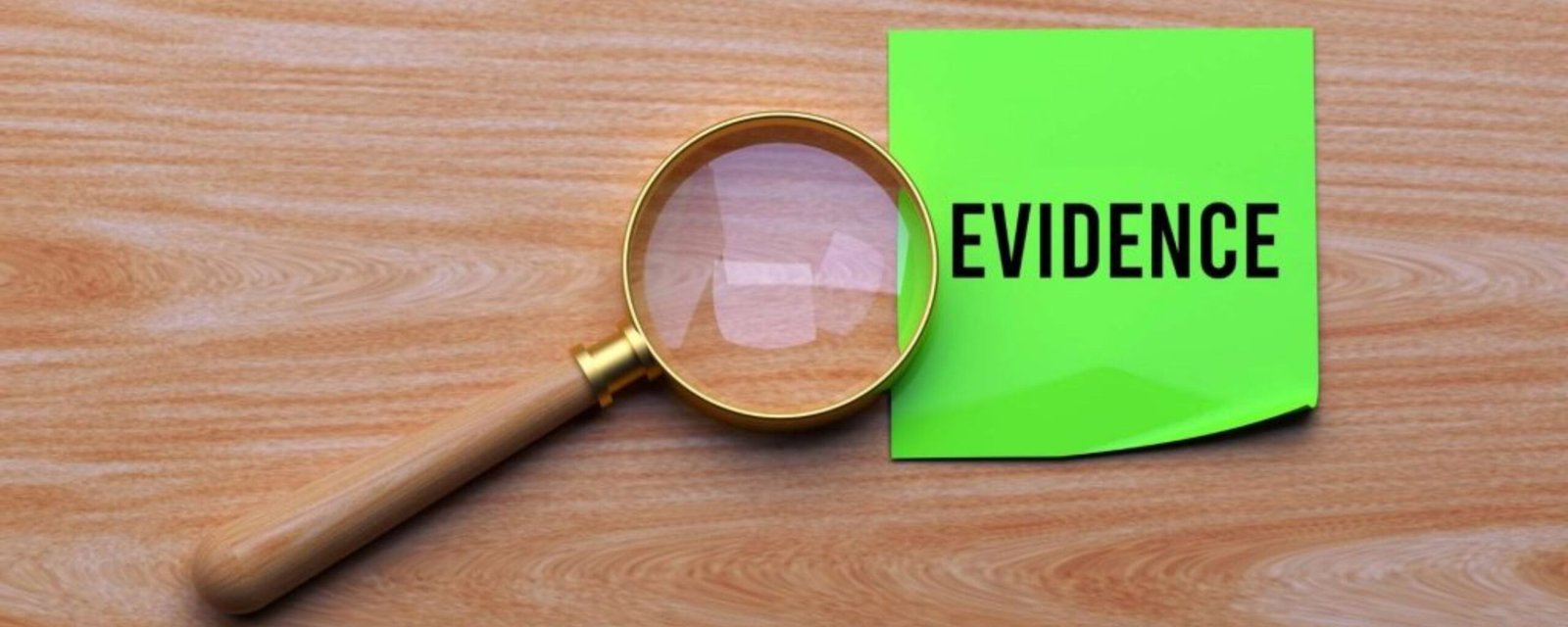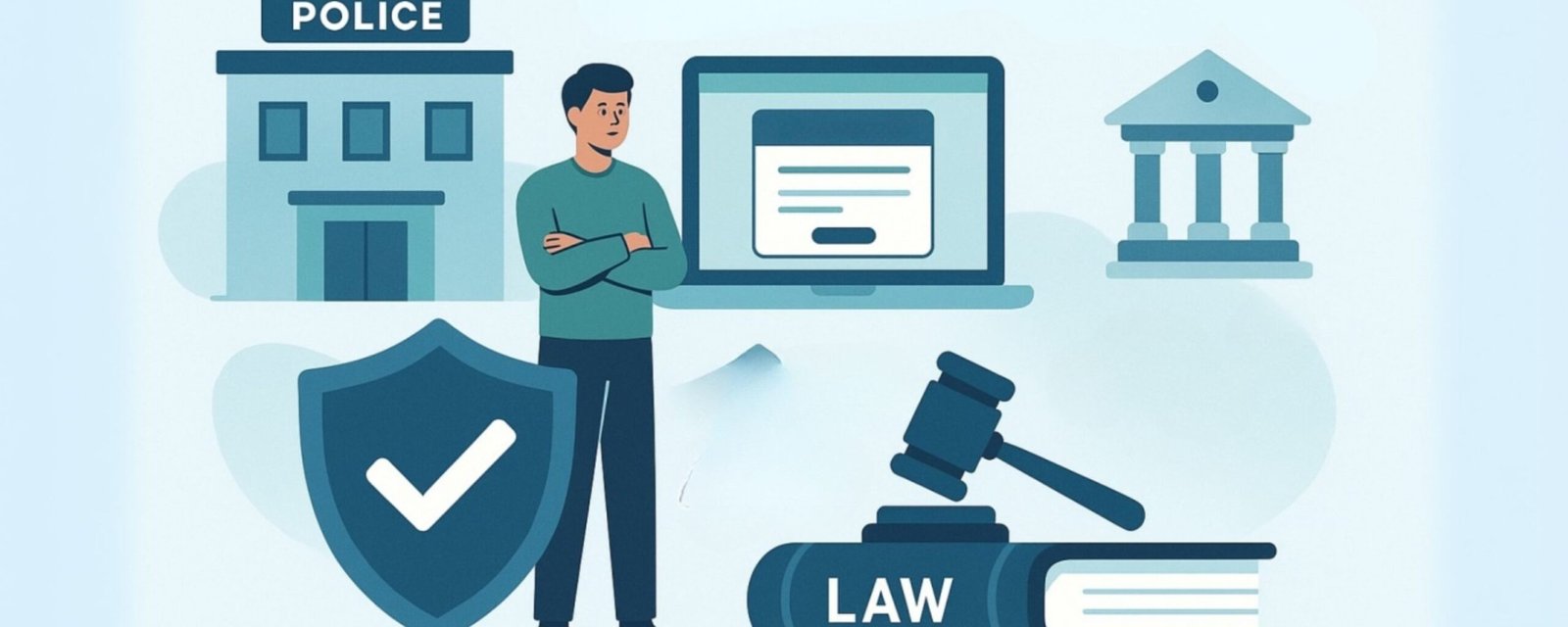Stalking complaints have emerged as a critical concern in contemporary society, reflecting the pervasive intrusion individuals face in their personal lives.
Understanding Stalking Complaints

This unsettling phenomenon encompasses a range of behaviours characterised by persistent, unwanted attention and harassment directed toward an individual.
From continued phone calls and text messages to physical surveillance and online stalking, the tactics employed by stalkers can be relentless and deeply distressing for their victims.
The prevalence of complaints underscores the urgent need for effective interventions to safeguard individuals’ safety, privacy, and well-being.
In this exploration, we delve into the complexities surrounding complaints, shedding light on the psychological impact, legal implications, and preventive measures essential for addressing this alarming issue.
Join us to navigate the intricate terrain of complaints, aiming to empower individuals with knowledge and resources to combat this form of harassment and reclaim their sense of security.
1. Importance of addressing stalking through legal channels

Addressing stalking through legal channels is paramount to ensure the safety and well-being of people affected by this distressing behaviour.
Stalking complaints are serious matters that demand swift action within the legal framework.
By seeking legal recourse, victims can obtain protection orders, restraining orders, and legal interventions that serve as crucial safeguards against further harassment and potential harm.
Legal avenues provide a structured approach to documenting and addressing instances of stalking, assisting victims in asserting their rights, and ensuring that perpetrators are held responsible for their actions.
Additionally, pursuing legal action sends a clear message that stalking behaviour will not be tolerated, thereby deterring future instances and promoting safer communities.
Through the diligent pursuit of legal remedies, individuals can reclaim their sense of security and regain control over their lives, ultimately fostering a society where stalking is not just condemned but effectively addressed.
2. Understanding Stalking
Understanding stalking is crucial in recognizing and addressing unwanted and persistent behaviours that can cause distress and fear.
Stalking complaints involve repeated and unwanted attention, harassment, contact, or any other behaviour that causes anxiety or concern.
It’s important to understand that stalking can take many forms, including physical following, unwanted communication through calls or messages, surveillance, or online stalking through social media.
Victims of stalking may experience anxiety, fear for their safety, and disruption of daily life.
Recognizing the signs of stalking and knowing how to respond can help protect individuals from further harm.
Seeking support from law enforcement, documenting incidents, and establishing boundaries are essential steps in addressing complaints and ensuring safety.
By understanding the dynamics of stalking and taking appropriate actions, individuals can protect themselves and seek help from authorities and support networks.
Different forms of stalking behaviour

Stalking Complaints encompass a range of behaviours that invade a person’s privacy and create fear or distress.
These behaviours can take various forms, such as physical stalking, where the perpetrator follows or surveils the victim, often showing up uninvited at their home, workplace, or other frequented locations.
Cyberstalking involves using electronic communication platforms to harass, intimidate, or monitor the victim, such as constant emails, texts, or messages on social media.
Additionally, there’s psychological stalking, where the stalker employs tactics to manipulate or control the victim’s emotions and actions, like spreading rumours or making threats.
Financial stalking involves monitoring or using the victim’s financial transactions or information.
Regardless of the form, stalking behaviour is alarming and can have severe consequences for the victim’s mental health and well-being.
Complaints should always be taken seriously, and victims should seek support and legal assistance to ensure their safety and protection.
1. Impact on victims and the need for intervention

Stalking complaints can have profound impacts on victims, necessitating swift intervention.
The psychological toll of being relentlessly pursued and monitored can lead to anxiety, fear, and even post-traumatic stress disorder.
Victims often experience a loss of control over their own lives as they constantly look over their shoulders, fearing the stalker’s next move.
This persistent harassment can disrupt daily routines, work, and relationships, leaving victims feeling isolated and vulnerable.
Without intervention, the situation can escalate, leading to potential physical harm or even death.
Intervention is crucial to provide support, protection, and legal recourse for victims. It can help them regain a sense of safety and control over their lives.
Stalking complaints highlight the urgent need for effective intervention measures to ensure the well-being and security of those affected.
2. Recognizing Stalking Patterns

Recognizing stalking patterns can be crucial for individuals facing stalking complaints.
Stalking behaviours often include repeated, unwanted contact or attention that makes the victim feel fearful or harassed.
These patterns may involve persistent surveillance, unwanted gifts or messages, or showing up uninvited at the victim’s workplace or home.
Stalkers might also use technology to monitor their victims, such as tracking their online activity or installing spyware on their devices.
Recognizing these behaviours early on can help victims take necessary steps to protect themselves and seek support from law enforcement or legal authorities.
It’s essential for individuals experiencing complaints to trust their instincts and document any incidents to build a case against the stalker.
Seeking assistance from support groups or counselling services can provide valuable guidance or emotional support during such challenging times.
3. Seeking support from friends, family, and professionals

When dealing with stalking complaints, seeking support from friends, family, and professionals is crucial.
Stalking can be a frightening and isolating experience, but you don’t have to face it alone.
Friends and family can provide emotional support or understanding and a sense of safety.
They can offer a listening ear and accompany you when needed.
Additionally, seeking help from professionals, such as counsellors or legal advisors, can provide valuable guidance and assistance in navigating the complexities of complaints.
These professionals can offer practical advice on safety measures, legal options, and emotional coping strategies.
Remember, seeking support is proactive, not weak, and finding solutions to address stalking concerns.
Initial Steps Before Filing a Complaint

Before filing a stalking complaint, it’s crucial to take initial steps to ensure a smooth and effective process.
Firstly, document any instances of stalking meticulously, including dates, times, and details of the behaviour.
This evidence will strengthen your case. Next, consider informing a trusted friend or family member about the situation for support.
It’s also wise to reach out to local law enforcement or a legal advisor to understand the process and your rights.
Additionally, gather any relevant evidence, such as messages, emails, or witnesses, to corroborate your claims.
Please remember that your safety and well-being should be your top priority throughout this process.
By taking these initial steps, you’ll be better prepared to file a stalking complaint and seek the necessary legal protection.
1. When and how to involve the police

Stalking complaints can be distressing, but involving the police can offer crucial support.
If you’re experiencing persistent unwanted attention or feel threatened by someone’s behaviour, it’s essential to reach out for help promptly.
Don’t wait for the situation to escalate; contact the authorities as soon as you feel unsafe.
Keep records of any incidents, including messages, calls, or encounters, as evidence.
When contacting the police, please provide them with detailed information about the incidents, including dates, times, and locations.
Be clear about how the behaviour is affecting you, and express your concerns for your safety.
The police can offer guidance on protective measures and legal options available to you.
Remember, your safety is paramount, and involving the police can be a crucial step in addressing stalking complaints and ensuring your well-being.
2. Providing necessary information and evidence

When dealing with stalking complaints, providing necessary information and evidence is crucial for seeking legal assistance and ensuring personal safety.
It’s essential to document every incident of stalking meticulously, including dates, times, and any communication received from the stalker.
This evidence can include emails, text messages, voicemails, or social media interactions.
Additionally, keeping a record of any witnesses or surveillance footage can further support your case.
When filing a stalking complaint, presenting this information to law enforcement or legal professionals can aid in obtaining a restraining order or pursuing criminal charges against the perpetrator.
Remember, the more detailed and comprehensive your evidence is, the stronger your case becomes.
Taking proactive steps to gather and organise this evidence can significantly contribute to ensuring your safety and seeking justice against the stalker.
3. Gathering Evidence

Gathering evidence is crucial when dealing with stalking complaints.
Whether you’re the victim or someone seeking justice, collecting proof is essential for legal recourse.
Evidence can include emails, text messages, social media interactions, photos, or witness testimonies.
Documenting each instance of stalking helps build a stronger case and increases the likelihood of a restraining order or pressing charges.
Take screenshots, save voicemails, and keep any physical evidence, such as letters or gifts. Remember to record the dates, times, and locations of each incident.
Additionally, notify law enforcement immediately and seek support from organisations specialising in aiding stalking victims.
By gathering concrete evidence and seeking appropriate assistance, victims can navigate the legal process and increase their chances of safety and justice.
4. Filing the Stalking Complaint

Filing a Stalking Complaint is a crucial step in seeking legal protection from unwanted harassment.
Stalking complaints can be filed by individuals who feel threatened or harassed by someone’s persistent behaviour.
To initiate the process, gather evidence such as messages, emails, or witness accounts documenting the stalking incidents.
Then, visit your local law enforcement agency or courthouse to file a formal complaint.
Provide detailed information about the stalker and the incidents, including dates, times, and locations.
Remember to prioritise your safety by seeking support from trusted friends or family members throughout the process.
Law enforcement officials will investigate the complaint and take appropriate actions for your protection and well-being.
By filing a stalking complaint, you’re taking an essential step towards reclaiming your peace of mind and safeguarding yourself from further harassment.
5. Working with Law Enforcement and Legal Professionals

When addressing stalking complaints, collaboration with law enforcement and legal professionals is crucial.
These experts possess the necessary knowledge or resources to handle such sensitive matters effectively.
By working closely with law enforcement, individuals can ensure that their concerns are taken and steps are taken to address the situation.
Legal professionals offer valuable guidance on navigating the legal process, including obtaining restraining orders and pursuing legal action against perpetrators.
Together, they provide support and protection to victims, helping them to feel empowered and secure.
This collaborative approach creates a safer environment for those affected by stalking, offering them the assistance they need to seek justice and peace of mind.
6. Protecting Your Privacy and Safety

Protecting your privacy and safety is crucial in today’s digital age, with the rise of complaints.
Stalking complaints refer to instances where individuals feel harassed or threatened by unwanted attention or monitoring.
To safeguard yourself, start by reviewing your online presence, ensuring your social media profiles are private and only visible to trusted individuals.
Be cautious about sharing personal information online, such as your address or daily routine.
Regularly update your passwords and enable authentication accounts for extra security.
Trust your instincts or report any suspicious behaviour to the authorities.
Consider using privacy tools and services, such as virtual private networks (VPNs) and encrypted messaging apps, to further protect your data and communications.
By taking these proactive measures, you can reduce the risk of privacy breaches and enhance your overall safety in both the digital and physical realms.
7. Resources and Support Organizations

If you’re dealing with stalking complaints, know that you’re not alone.
There are resources and support organisations available to help you navigate through this challenging situation.
These organisations offer various forms of assistance, such as legal advice, counselling services, and safety planning.
They can provide you with the necessary support and guidance to address your concerns and take appropriate action.
Whether you need help understanding your rights, obtaining a restraining order, or accessing community resources, these organisations are here to assist you every step of the way.
Remember, reaching out for help is the first step to reclaiming your sense of safety and well-being.
Don’t hesitate to seek support from these valuable resources if you’re experiencing stalking or harassment.
Conclusion
In conclusion, addressing stalking complaints necessitates a multifaceted approach that combines legal, psychological, and societal efforts.
It’s imperative to recognize that stalking is not merely a nuisance but a serious violation of personal boundaries that can lead to severe psychological trauma and physical harm.
Also, by fostering a culture of awareness and support, communities can encourage victims to come forward without fear of judgment or disbelief.
Moreover, Law enforcement agencies must take complaints seriously, conduct thorough investigations, and provide appropriate protection and support to victims.
Moreover, ongoing education and training for law enforcement personnel, judges, and the general public are essential to combatting the prevalence of stalking and ensuring that victims receive the assistance they need.
Ultimately, through collaboration and vigilance, we can work towards a society where stalking complaints are swiftly and effectively addressed, and victims can find solace and justice.
For more combat/fight-related blogs, Subscribe to us Now!
FAQ
Q: What is considered stalking?
An. Stalking is defined as a pattern of negative behaviour that makes an individual feel fearful or harassed. It can include following someone, making unwanted contact, monitoring their activities, or making threats.
Q: How do I know if I’m being stalked?
An. If you feel like someone is constantly watching or following you, if you receive numerous unwanted messages or gifts, or if you find evidence that someone has been in places they shouldn’t be, you may be experiencing stalking.
Q: What should I do if I am being stalked?
An. First, trust your instincts. If you feel unsafe, take action. Document all instances of stalking behaviour, including dates, times, and what happened. Inform trusted friends, family, and authorities. Consider obtaining a restraining order.
Q: How can I report stalking?
An. Contact your local law agency to file a report. Please provide them with as much information as possible, including any evidence you’ve gathered. They can help you navigate the legal process and provide resources for your safety.
Q: What legal options do I have if I’m being stalked?
An. Depending on your jurisdiction, stalking may be a criminal offence. You may be able to pursue criminal charges against the stalker. Additionally, you can seek a civil restraining order to require the stalker to stay away from you legally.
Q: How can I protect myself from stalking?
An. Take steps to enhance your safety, such as varying your routine, securing your home and online accounts, and avoiding contact with the stalker. Consider seeking support from a counsellor or support group to cope with the emotional toll of being stalked.
Q: Is stalking a severe crime?
An. Law enforcement and the legal system take stalking very seriously, considering it a form of harassment or intimidation with severe emotional/psychological effects on victims.
Q: Where can I find help if I am being stalked?
An. There are numerous resources available to support stalking victims, including hotlines, victim advocacy organisations, and legal aid services. Reach out for help and support—it’s essential to take action to protect yourself from further harm.

